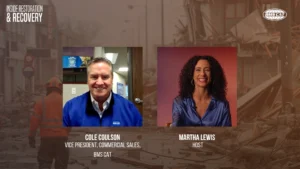How to Prevent Winter Weather From Freezing Your Business
Winter weather can cause havoc in many ways, mainly by damaging property and disrupting transportation and supply chains. There are of course the obvious disruptions like a fallen tree on a building or frozen pipes, but also other consequences that cause businesses to lose money.
In fact, the severe winter of 2014 affected more than 60 percent of the auto industry, with Ford and General Motors experiencing sales declines of 7.2 percent and 12 percent respectively due to the weather’s impact on operations.
Winter weather is not a variable that business owners can control, however there are a few ways they can be proactive when it comes to the threat of winter weather.
Preparing for Winter Weather
Every kid loves a snow day growing up, but for business owners snow days are a challenge. There are lots of things to consider like safety, Occupational Safety and Health Administration (OSHA) regulations, and liability concerns. There is also the reality of dealing with lost productivity because employees may be unable to make it to work.
Having a plan will allow business owners to handle situations in the best way possible.
Safety First
Safety should be a top priority all year long, but hazards become more evident with inclement weather. If employees have to work in the elements, then businesses must consider how low the temperature is and if it is safe for them to be there. One can research OSHA tips—there are no regulations in place—for best practices on cold stress. Among the suggestions are frequent breaks to stay warm, staying hydrated, and wearing appropriate layers to prevent cold stress.
Proper Training
Keeping employees aware about the risks of winter weather with regular training is critical if snow and ice are present in a business location’s climate. Safety measures may need to change based on weather issues, including wearing protective gear to ensure that the floor does not become slippery or wet should employees have to work outside
Protecting Assets
The staff and their safety are the lifeblood of any company. Protecting physical assets is also a major concern in severe weather events. Cold weather can be a huge challenge for the exterior of a building. Knowing about a roof and how much of a load it can handle with accumulating snow and ice is potentially a lifesaver. Once things are known to be secure, areas like the parking lot need to be cleared and de-iced so that customers can enjoy a normal shopping experience.
The important thing is to have a plan. Determining exactly how to remove the snow or ice from the parking lot and sidewalks is not easy on the fly. For the roof, contacting an expert to ensure that is not impacted by the weight might be necessary, so having contact information readily available is something to consider seriously.
On the inside, businesses have to be winter ready as well. Frozen pipes are an expensive claim. A research project that looked at more than 400 frozen pipe claims in Philadelphia, Penn. found the average claim to be $27,000. There are a few things companies can do to prevent frozen pipes: keep the head on, let faucets drip, seal up cracks, leave interior doors closed, and add extra insulation. If a pipe does freeze, and it bursts, not only will there be property damage but also lost productivity.
As you can see, winter has the opportunity to upset business in many ways. The best thing a building manager or business owner can do is have a plan to handle it that focuses on safety and keeping operations running.
For the latest news, videos, and podcasts in the Building Management Industry, be sure to subscribe to our industry publication.
Follow us on social media for the latest updates in B2B!
Twitter – @BuildingMKSL
Facebook – facebook.com/marketscale
LinkedIn – linkedin.com/company/marketscale








